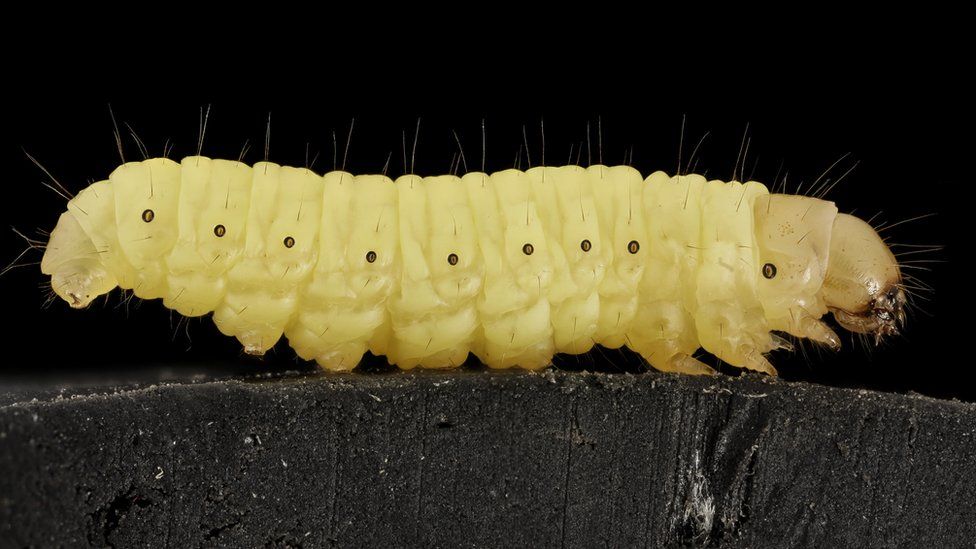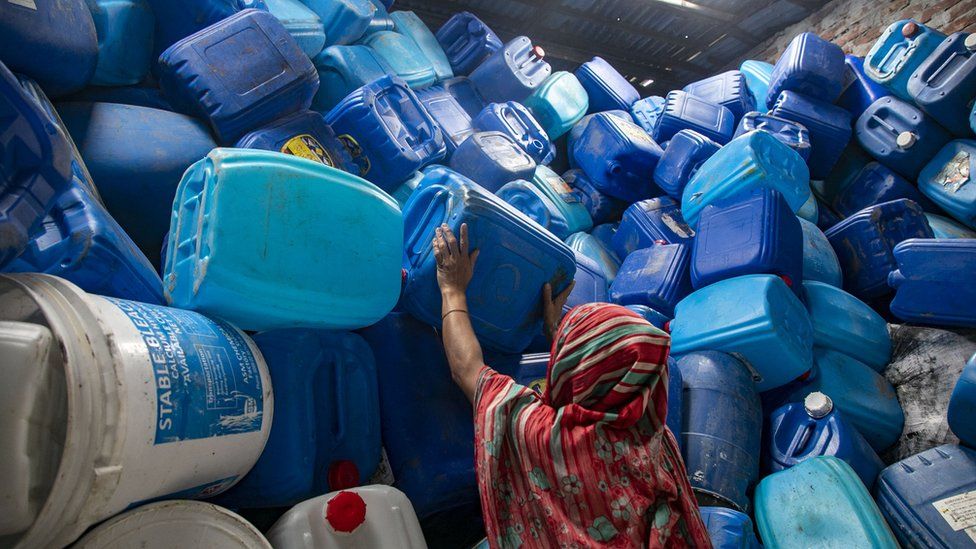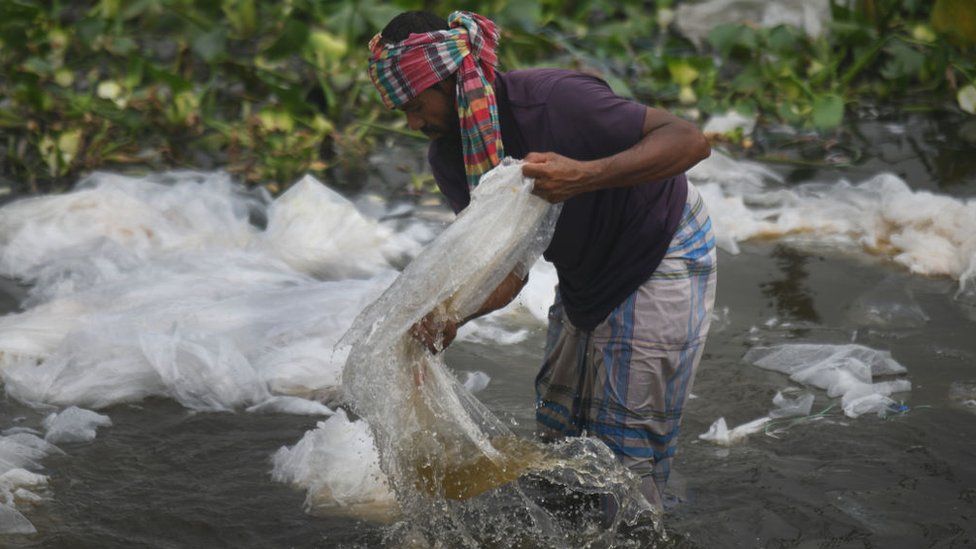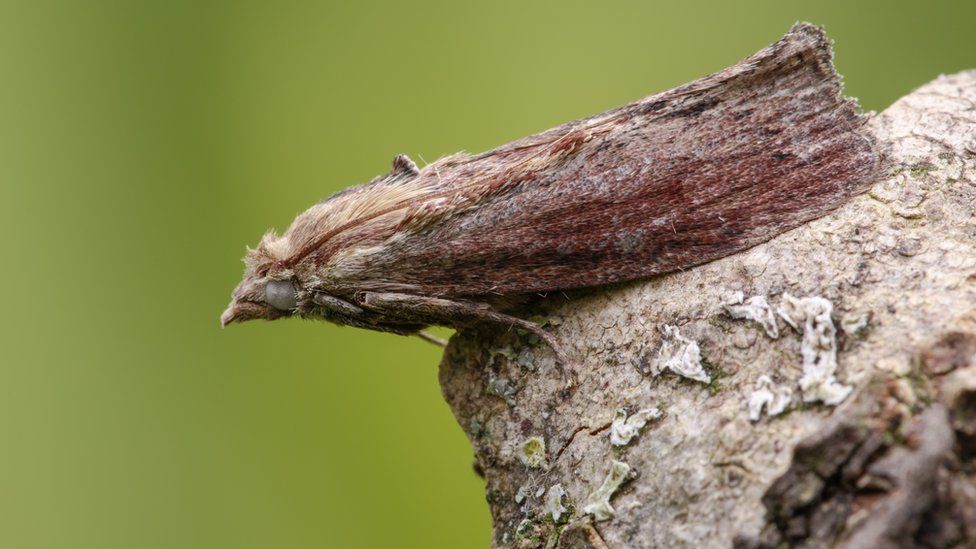Could the solution to plastic pollution be found inside the mouths of tiny wax worms?
 Image source, SPL
Image source, SPLOne of the worst forms of plastic pollution may have met its match in the saliva of a humble worm.
Spanish researchers say they’ve discovered chemicals in the wax worm’s drool that break down polyethylene, a tough and durable material.
The researchers say that one hour’s exposure to the saliva degrades the plastic as much as years of weathering.
They hope the breakthrough will lead to new natural approaches to deal with plastic pollution.
They’ve discovered two enzymes in the liquid that can degrade polyethylene at room temperatures and believe it’s the first time that such an effective agent has been found in nature.
From the poles to the depths of the oceans, plastic is a major pollution issue across the whole world.

Image source, Getty Images
While efforts to reduce, recycle and reuse plastic are slowly making progress, there are few options when it comes to the very sturdy polyethylene (PE) material.
It is one of the most widely used forms, comprising around 30% of production and is used for a wide range of materials including hard wearing items like pipes, flooring, and bottles but it’s also used for bags and food containers.
This plastic is dense and is very slow to break down in nature as it is highly resistant to oxygen.
Most attempts to degrade it require PE to be pre-treated with heat or UV light to incorporate oxygen into the polymer.

Image source, Getty Images
The Spanish team first discovered that wax worms could break down the material in 2017, but in this new study they’ve worked out that the key elements are enzymes in the creature’s saliva.
In their paper they show that this key step of getting oxygen into the polymer can be achieved within an hour of the plastic being exposed to the saliva of the larvae.
“What we think is that the enzymes are capable of an accelerated version of the weathering of polyethylene,” said Dr Clemente Arias, a co-author from the Spanish National Research Council.
“What we found was that the enzymes alone can oxidise plastic, which is the process that takes such a long time in the environment,” he told BBC News.
The researchers are using saliva from the larvae of the greater wax moth, commonly known as wax worms.

Image source, SPL
These creatures are a well known pest that attacks and destroys honeybee hives. They are also popular with anglers as a bait and as a food source for reptiles.
The researchers say the larvae’s destructive abilities when it comes to beeswax may provide an explanation of their capacity for PE degradation.
The scientists believe that what they’ve discovered so far provides a promising alternative approach to biological degradation and could lead to new solutions.
“We imagine you could apply this new understanding to large plastic waste management facilities,” said Dr Federica Bertocchini, a co-author on the paper also from the Spanish National Research Council.
“But you could also have a home-based kit which could help you degrade your own plastic.”
There are still many questions to be answered, say the researchers, including whether the saliva is working on the polymer or on the additives that are used to strengthen this type of plastic.
“We also want to know why a humble worm has these amazing enzymes, what’s the use of them in their daily life,” said Dr Arias.
They want to now develop their work by carrying out bigger experiments.
“The field of biodegradation is focused on bacteria and fungi, mostly bacteria, and on looking for enzymes,” said Dr Bertocchini.
“Now we have some enzymes that work, so the idea is, well, let’s give it a try.”
The study has been published in the journal, Nature Communications.
Follow Matt on Twitter @mattmcgrathbbc.